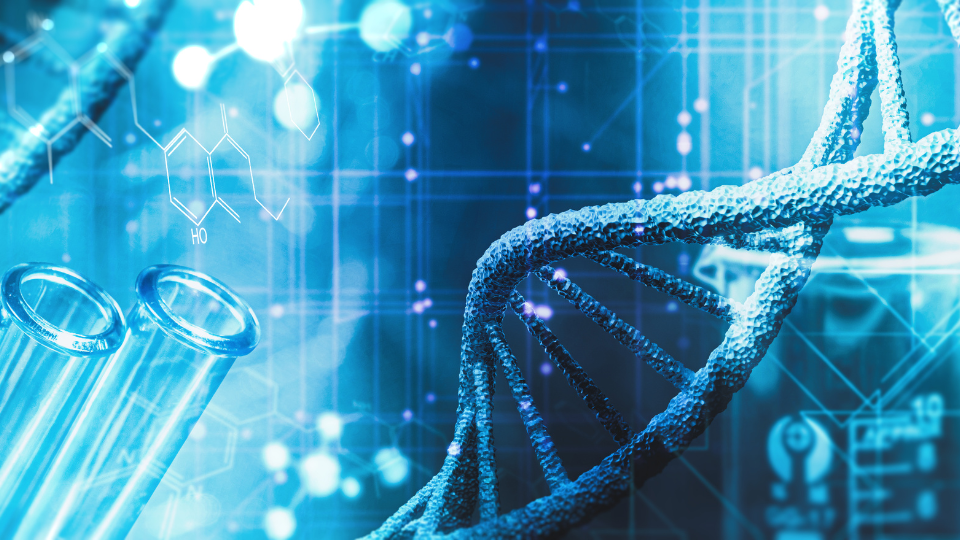What is pharmacogenetics?
Different people respond in different ways to medication. There are several factors that affect how an individual responds to a drug, one of which being their genetic makeup. Pharmacogenetics refers to the study of genes in order to predict people’s responses to certain medications.
By studying someone’s genes, it’s possible to gain certain information about how they might respond to a certain medication.
The Royal College of Physicians has stated that the ultimate goal is to “make pharmacogenomic-based prescribing a reality for all.” At ROC Clinic we couldn’t agree more. We’ve been working with genomics since 2016 and believe pharmacogenetics plays a key role in providing our patients with personalised medicine.
Drugs work differently in different people
As humans, our genetic makeup differs. Our genes affect the way we look, the way we think, and even the way we respond to medications.
Medications work by targeting certain processes in the body, and changing them in some way. But variations in our genes can mean that drugs might not work in the way they were intended.
For example, did you know that some painkillers might not work very well for certain people? Let’s take a look at codeine…
In order for codeine to work it has to be metabolised (transformed) into morphine which acts as a strong painkiller. In order for this metabolism to take place the body needs an enzyme called CYP2D6. The expression of this enzyme is controlled by gene CYP2D6. However, people with non-functioning variations of this gene may not be able to produce enough of the enzyme to metabolise codeine. These people will therefore not experience the same reduction in pain as people who have fully functioning variations of the gene.1
If the prescriber knew which version of the gene their patient had, they could use this to decide whether codeine would be an effective painkiller. This is an example of how pharmacogenetics could be used to make more informed decisions on drug treatments.
How does pharmacogenetics work?
Pharmacogenetics requires the following:
- An understanding of how the drug works
- An understanding of which genes can alter the way the drug works
- The ability to test patients for those genes
With all three, healthcare professionals can use pharmacogenetics to make better-informed decisions about which drugs to prescribe patients
What are the benefits of pharmacogenetics?
Pharmacogenetics can tell us:
- Whether a certain patient is likely to respond to a certain drug
- What dose of drug the patient needs for treatment
- Whether the patient is at risk of certain dangerous reactions to the drug
When can pharmacogenetics be used?
Pharmacogenetics can play a valuable role in successful treatment of conditions. Currently, pharmacogenetics are used in the NHS in a few select conditions such as the treatment of breast cancer. Unfortunately, on the whole, the use of pharmacogenetics in clinical practice is relatively poor.2
As the evidence in favour of pharmacogenetics grows we hope that its use will become a standard part of clinical practice.
How is genetic testing carried out?
In order to gain information about your genetic makeup, certain healthcare providers offer a process called genome sequencing.
At ROC Clinic we work with New Amsterdam Genomics to offer our patients the latest cutting edge technology in genome sequencing.
To provide you with your genome sequence we simply take a small sample of saliva and send it to our labs. Our experienced doctors will then talk you through your genome sequencing results, explaining to you what each of the findings mean.
In addition to providing you with information about the effectiveness of certain drugs, genomic testing offers a range of other benefits.
To learn more about genome sequencing, click here or give our friendly team a call on 01224 515254.
References
- Taylor C, Crosby I, Yip V, Maguire P, Pirmohamed M, Turner RM. A Review of the Important Role of CYP2D6 in Pharmacogenomics. Genes (Basel). 2020;11(11):1295. Published 2020 Oct 30. doi:10.3390/genes11111295
https://www.ncbi.nlm.nih.gov/pmc/articles/PMC7692531/
- Cecchin E, Stocco G. Pharmacogenomics and Personalized Medicine. Genes (Basel). 2020;11(6):679. Published 2020 Jun 22. doi:10.3390/genes11060679


